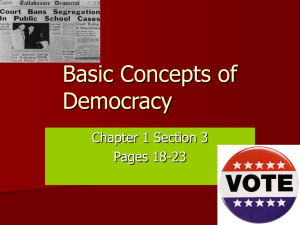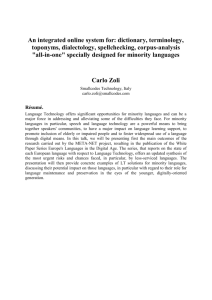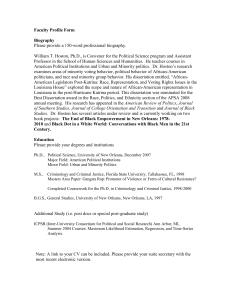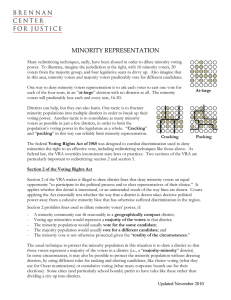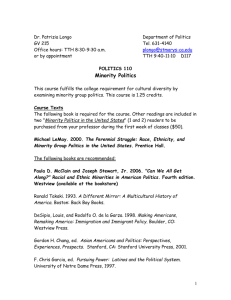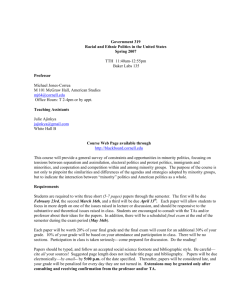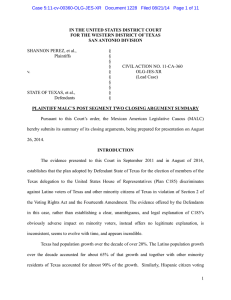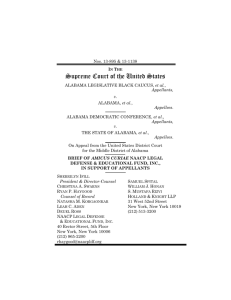Political Science 325 / Latina/Latino Studies 325
advertisement
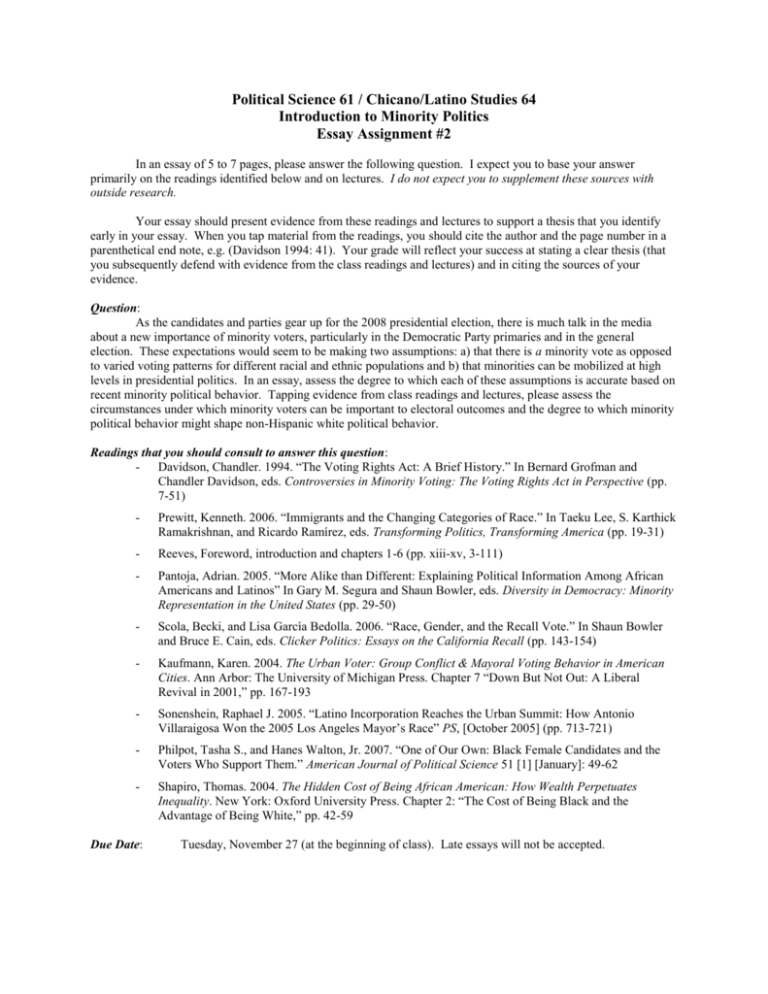
Political Science 61 / Chicano/Latino Studies 64 Introduction to Minority Politics Essay Assignment #2 In an essay of 5 to 7 pages, please answer the following question. I expect you to base your answer primarily on the readings identified below and on lectures. I do not expect you to supplement these sources with outside research. Your essay should present evidence from these readings and lectures to support a thesis that you identify early in your essay. When you tap material from the readings, you should cite the author and the page number in a parenthetical end note, e.g. (Davidson 1994: 41). Your grade will reflect your success at stating a clear thesis (that you subsequently defend with evidence from the class readings and lectures) and in citing the sources of your evidence. Question: As the candidates and parties gear up for the 2008 presidential election, there is much talk in the media about a new importance of minority voters, particularly in the Democratic Party primaries and in the general election. These expectations would seem to be making two assumptions: a) that there is a minority vote as opposed to varied voting patterns for different racial and ethnic populations and b) that minorities can be mobilized at high levels in presidential politics. In an essay, assess the degree to which each of these assumptions is accurate based on recent minority political behavior. Tapping evidence from class readings and lectures, please assess the circumstances under which minority voters can be important to electoral outcomes and the degree to which minority political behavior might shape non-Hispanic white political behavior. Readings that you should consult to answer this question: - Davidson, Chandler. 1994. “The Voting Rights Act: A Brief History.” In Bernard Grofman and Chandler Davidson, eds. Controversies in Minority Voting: The Voting Rights Act in Perspective (pp. 7-51) - Prewitt, Kenneth. 2006. “Immigrants and the Changing Categories of Race.” In Taeku Lee, S. Karthick Ramakrishnan, and Ricardo Ramírez, eds. Transforming Politics, Transforming America (pp. 19-31) - Reeves, Foreword, introduction and chapters 1-6 (pp. xiii-xv, 3-111) - Pantoja, Adrian. 2005. “More Alike than Different: Explaining Political Information Among African Americans and Latinos” In Gary M. Segura and Shaun Bowler, eds. Diversity in Democracy: Minority Representation in the United States (pp. 29-50) - Scola, Becki, and Lisa García Bedolla. 2006. “Race, Gender, and the Recall Vote.” In Shaun Bowler and Bruce E. Cain, eds. Clicker Politics: Essays on the California Recall (pp. 143-154) - Kaufmann, Karen. 2004. The Urban Voter: Group Conflict & Mayoral Voting Behavior in American Cities. Ann Arbor: The University of Michigan Press. Chapter 7 “Down But Not Out: A Liberal Revival in 2001,” pp. 167-193 - Sonenshein, Raphael J. 2005. “Latino Incorporation Reaches the Urban Summit: How Antonio Villaraigosa Won the 2005 Los Angeles Mayor’s Race” PS, [October 2005] (pp. 713-721) - Philpot, Tasha S., and Hanes Walton, Jr. 2007. “One of Our Own: Black Female Candidates and the Voters Who Support Them.” American Journal of Political Science 51 [1] [January]: 49-62 - Shapiro, Thomas. 2004. The Hidden Cost of Being African American: How Wealth Perpetuates Inequality. New York: Oxford University Press. Chapter 2: “The Cost of Being Black and the Advantage of Being White,” pp. 42-59 Due Date: Tuesday, November 27 (at the beginning of class). Late essays will not be accepted.


